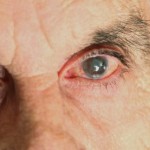
In this blog post, the team at Island Eye Surgicenter explains what to do if you develop a case of pink eye and how to prevent it.
Treatment Options
The course of treatment depends on the type of pink eye you have.
Viral conjunctivitis generally runs its course within a period of a few days. Applying a cold, wet washcloth to the eyes several times a day can soothe irritation.
Bacterial conjunctivitis is usually treated with antibiotic eye drops or ointments. Leaving bacterial conjunctivitis untreated can be dangerous and cause severe damage to the eyes.
Allergic conjunctivitis typically responds to allergy medications. Unlike viral and bacterial conjunctivitis, it is not contagious.
Keep in mind how dangerous it is to self-diagnose. Red or pink eyes could actually be a symptom of another eye condition. It is important to seek the medical advice of an eye doctor, who can diagnose your condition and provide the appropriate medication (if needed).
How to Prevent Pink Eye
There are several things you can do to reduce your risk of catching pink eye.
- Wash your hands frequently and keep a hand disinfectant with you.
- Never share washcloths, hand towels, tissues, eye makeup or brushes.
- Never share contact lenses (even costume contact lenses),
- Avoid touching or rubbing your eyes.
- Keep surfaces in the bathroom and kitchen clean.
- If you have a history of seasonal allergies, ask your allergist or eye doctor ahead of time for advice.
- Follow your eye doctor’s instructions for the care and replacement of your contact lenses.
- Wear swim goggles under water to shield yourself from conjunctivitis-causing bacteria.
School-aged children, teachers and college students are at a heightened risk of developing pink eye because they spend most of the day in close proximity to others. If you attend or work in a school, be extra diligent about keeping your hands clean, not touching your eyes and not sharing personal items.
Contact Island Eye Surgicenter Today
If you have questions about the prevention and treatment of pink eye — or other questions about your eye health or vision — please contact us today by calling (516) 877-2400 or (516) 877-1560.
